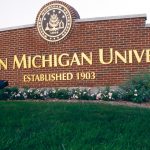Scholarship: Fully-funded
Degree: B.S./M.S
Nationality: International Students
Location: USA
Application deadlines: Open
Scholarship Description:
Dr Ania Baetica received her B.S. in Mathematics from Princeton University and her Ph.D. in Control and Dynamical Systems from the California Institute of Technology, followed by a postdoctoral fellowship at the University of California, San Francisco; she was appointed as an Assistant Professor in the Department of Mechanical Engineering and Mechanics at Drexel University in 2022.Dr Baetica’s research group combines engineering approaches, systems biology, synthetic biology, and computational science to address challenges in biotechnology and medicine.
Mentor profile website: https://drexel.edu/engineering/about/faculty-staff/B/baetica-ania/
Dr Xiao Huang received his B.S. degree from Nanjing Agricultural University and his Ph.D. degree in Biochemistry from the University of California, Santa Barbara; followed by a postdoctoral fellowship at the University of California, San Francisco; and was appointed as an Assistant Professor in the School of Biomedical Engineering at Drexel University in 2023. He has published several papers in top journals in the field of materials and biomedical engineering, including Nature Nanotechnology, Nature Protocols, ACS Nano, Advanced Materials, etc., and has filed three U.S. patent applications. In 2022, he was named a Burroughs Wellcome Fund (BWF) Rising Star in the field of biointerfaces.
Group website: https://biomed.drexel.edu/labs/huang/
Translated with DeepL.com (free version)
Available Subjects:
- Immunotherapy has emerged over the past decade as an effective treatment option for cancer and autoimmune diseases, but its widespread use still poses significant challenges in terms of efficacy and safety. For example, the use of chimeric antigen receptor (CAR)-engineered T cells to treat B-cell malignancies in the clinic has resulted in many patients achieving remissions early in treatment, but relapsing in the medium to long term due to CAR T cell exhaustion. To improve the efficacy and sustainability of T-cell therapies, we combine experimental immunology, statistical data analysis and mathematical modelling approaches to study the gene regulatory network that determines T-cell fate. We use advanced synthetic biomaterial platforms to deliver key activation signals to T cells and record transcriptomic and proteomic data and phenotypic responses of T cells. We are using this big data to address fundamental questions about how gene regulation modulates phenotypes such as T cell efficacy, differentiation and exhaustion. The long-term goal of this research is to use computational and experimental tools to precisely control T cell differentiation and phenotype to facilitate their efficacy and application in therapies such as cancer, viral infections and autoimmune diseases.
Eligibility criteria:
- 1.Have or will have a Bachelor’s or Master’s degree related to bioinformatics, pharmacy or biomedical engineering;
- 2.Proficient in Python language for data analysis, strong interest in immune mechanism and immune applications and biomaterials are preferred;3.Love scientific research, optimistic and cheerful, work carefully and rigorously, and have team spirit;
- TOEFL score (GRE score is not required).
Application Procedure:
Interested students should send their CVs to [email protected] and [email protected]

